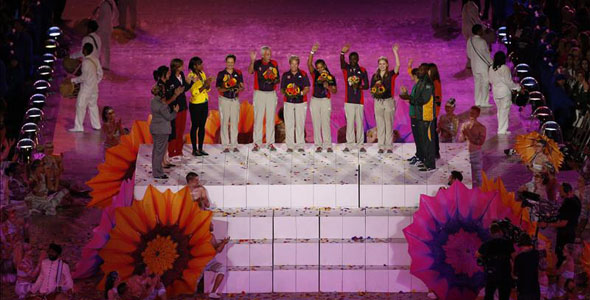London 2012 and the Great Olympic Race 10 Years on – Michael Pirrie
July 6, 2015
MICHAEL PIRRIE, who led the international communications and media relations programme for the London Bid team and stayed on to help organise the Games as executive adviser to Chairman Sebastian Coe, analyses the legacy of the London bid for the Olympic Movement and future bid cities on the 10 year anniversary of London’s agenda setting Olympic victory.
It barely seems possible that 10 years have now passed since London won the bid to host the 2012 Olympic and Paralympic Games in what has come to be regarded as the toughest and most competitive contest ever to stage the worlds biggest and most inspirational sporting spectacle, the Olympic Games.
Never before had such an array of mega cities assembled against each other in such an epic international contest that would span the globe and test the resources, skills and character of the respective bid teams, their iconic cities and historic nations like never before. Nor since.
New York, Paris, Moscow, Madrid and London. And that was just the shortlist. It was like a giant international monopoly board had come to life – The Eiffel Tower versus Big Ben or Tower Bridge versus Statue of Liberty, versus Red Square and so on, with the world and its media looking on in fascination for nearly three years as the cities went head to head highlighting their unique charms, cultures, land marks and passion for sport to win the popular vote of the international community and then the IOC vote in what became known amongst Olympic insiders as “The Great Race.”
If the pool of cities willing to bid for the Olympic Games reflects the health of the Olympic Movement – and it does, which is why IOC President Thomas Bach is focussing much attention on reforms to the bidding process to make it easier for more cities to successfully bid and stage the Games – then the movement was in gold medal condition for this bid.

As each bid city team harnessed the talents of the very best of their business, creative, marketing, communications, sporting, international, political, and culture communities and leaders, new standards would be established for the bidding process of the Olympic Games and related major international events in sport and would be transferred across other sectors as well.
Never before had such drama surrounded a bidding cycle for the Olympic Games nor engulfed a victorious bidding city as tragedy descended on London just hours after it was selected to stage the Games for a record third occasion, following the 1908 and 1948 Games.
The London bombings brought the capital, country and continental Europe to a standstill as the death toll continued to climb, reaching more than 50, and sending shock waves around the world and doubt about the future of the Games in London.
Although the bombings were not linked to London’s Olympic Bid, the two extremes in fate and fortune have become fussed together in time forever, and challenged London and its residents as the city rebuilt and prepared to host the Games over seven long years, with a global financial crisis later to contend with as well.
Much has happened in the decade since the bid and the bombings. The Games have been successfully delivered, in part out of a personal sense of duty and commitment by everyone involved to those who died or were injured in the bombings.



